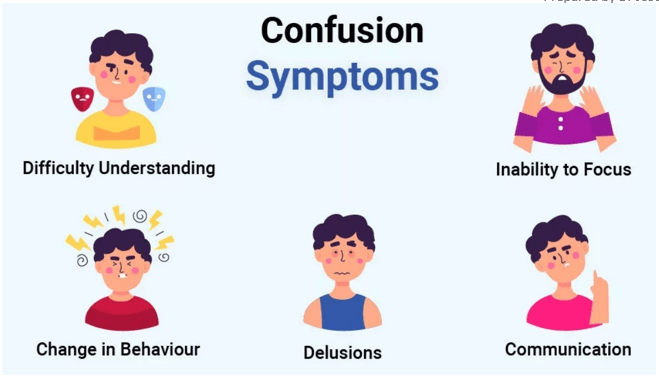An older female adult who was admited to a long-term care facility yesterday is confused about what day of the week it is. Her history does not indicate that she was confused prior to admission. What action should the practical nurse (PN) take?
Document the client's loss of memory in the record.
Notify the family of the change in the client's condition.
Remind the client what day of the week it is.
Encourage the client to rest during the day.
The Correct Answer is C
it provides reality orientation and helps the client cope with the change in environment. The client may be experiencing acute confusion or delirium due to stress, medication, infection, or other factors. The PN should remind the client of the date, time, and place frequently and use other strategies such as calendars, clocks, and familiar objects to reduce confusion.

Nursing Test Bank
Naxlex Comprehensive Predictor Exams
Related Questions
Correct Answer is ["B","D"]
Explanation
A) Incorrect - Providing a regular diet tray is important for the client's nutritional needs, but it is not as urgent as assessing vital signs or administering Albuterol in response to the client's acute symptoms.
B) Correct- This action is a priority after any assessment or intervention. Vital signs provide important information about the client's overall condition, including heart rate, blood pressure, respiratory rate, and oxygen saturation.
C) Incorrect - Applying oxygen is important, but its priority depends on the client's vital signs and oxygen saturation, which should be assessed first.
D) Correct- Administering Albuterol as ordered is crucial for addressing the client's acute breathing difficulty. Albuterol is a bronchodilator that helps alleviate asthma symptoms, and timely administration is essential.
E) Incorrect - Performing a pulmonary function test is valuable for assessing lung function, but it's not an immediate concern compared to addressing the client's breathing difficulty.
Correct Answer is C
Explanation
A) Incorrect- an audible voice when client is trying to communicate, indicates that the client has some air passing through the vocal cords, which may be due to a partially deflated cuff or a speaking valve. This is not a life-threatening situation, but the nurse should ensure that the cuff pressure is adequate and that the client is not experiencing any discomfort or aspiration risk.
B) Incorrect- This may indicate atelectasis, pneumonia, or pleural effusion in that lung area. The nurse should auscultate the client's lungs more thoroughly, monitor the client's oxygenation and ventilation parameters, and report the findings to the provider.
C) Correct- This finding suggests that the client may have a ventilator disconnect, a leak in the circuit, or a cuff leak, which can compromise the client's oxygenation and ventilation. The nurse should immediately check the ventilator connections and tubing, and assess the client's vital signs and oxygen saturation.
D) Incorrect- high-pressure alarm sounds when the client is coughing, which is a common occurrence in mechanically ventilated clients who have increased airway resistance due to secretions, bronchospasm, or coughing. The nurse should suction the client as needed, administer bronchodilators if prescribed, and ensure that the ventilator settings are appropriate for the client's condition.
Whether you are a student looking to ace your exams or a practicing nurse seeking to enhance your expertise , our nursing education contents will empower you with the confidence and competence to make a difference in the lives of patients and become a respected leader in the healthcare field.
Visit Naxlex, invest in your future and unlock endless possibilities with our unparalleled nursing education contents today
Report Wrong Answer on the Current Question
Do you disagree with the answer? If yes, what is your expected answer? Explain.
Kindly be descriptive with the issue you are facing.
